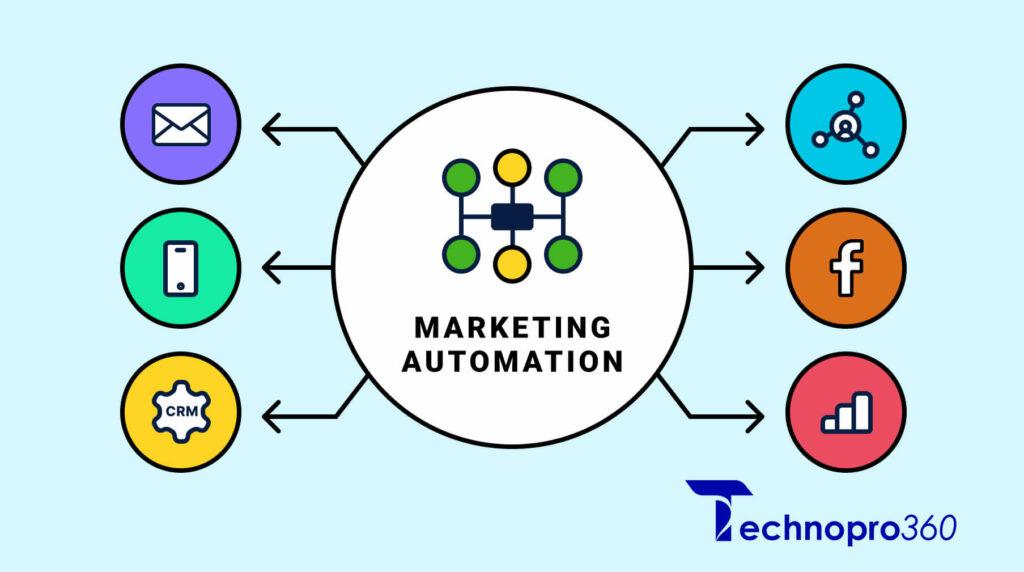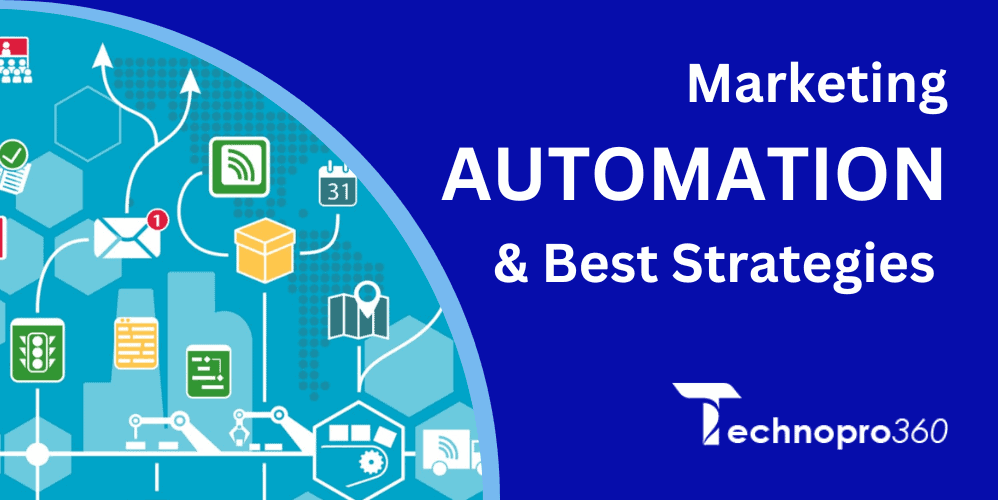Marketing automation refers to using tools and state-of-the-art technology to automate marketing tasks and processes. These tasks can include email marketing, social media marketing, lead generation, and customer segmentation. Marketing automation aims to streamline and optimize marketing efforts, allowing businesses to reach and engage with their target audience more efficiently.
Marketing Strategies and Best Practices
There are several strategies that businesses can use when implementing marketing automation. One strategy of digital marketing automation is to segment and personalize marketing efforts. Businesses can create more targeted and personalized marketing campaigns by segmenting their audience into smaller groups based on characteristics such as demographics, interests, and behaviour. This can increase the effectiveness of marketing efforts and improve the customer experience.
Email Marketing
Another strategy is to create and automate targeted email marketing campaigns. Email marketing can be an effective way to reach and engage with customers. Marketing automation software can be used to create and send personalized email campaigns based on specific criteria such as customer behaviour and interests.
There are many tools available for email marketing; some of the most popular ones include:
- Mailchimp: A popular email marketing platform that offers a range of features, including email templates, automation, segmentation, and analytics.
- Constant Contact: Another popular email marketing platform with various features, including email templates, automation, list management, and analytics.
- HubSpot: A comprehensive marketing and sales platform that includes email marketing feature such as email templates, automation, segmentation, and analytics.
- AWeber: An email marketing platform that offers features such as email templates, automation, list management, and analytics.
- GetResponse: An email marketing platform that offers a range of features, including email templates, automation, list management, and analytics.
- ActiveCampaign: An email marketing platform that offers a range of features, including email templates, automation, segmentation, and analytics.
- Campaign Monitor: An email marketing platform that offers a range of features, including email templates, automation, segmentation, and analytics.
Social Media Marketing
Social media marketing is another area where marketing automation can be effective. Social media management tools allow businesses to schedule and automate posts, monitor social media activity, and engage with followers in real-time. This can save time and resources while also increasing the reach and impact of social media marketing efforts.
There are many tools available for social media marketing; some of the most popular ones include:
- Hootsuite: A social media management platform that allows you to schedule and publishes content, track conversations, and measure the performance of your social media campaigns.
- Buffer: A social media management platform that allows you to schedule and publish content, as well as analyze the performance of your social media campaigns.
- Sprout Social: A social media management platform that offers a range of features, including scheduling and publishing, conversation management, and analytics.
- SocialBee: A social media management platform that offers a range of features, including scheduling and publishing, conversation management, and analytics.
- Later: A social media management platform specifically for Instagram that allows you to schedule and publish content and analyze your Instagram account’s performance.
- Planoly: A social media management platform specifically for Instagram that allows you to schedule and publish content and analyze your Instagram account’s performance.
- TweetDeck: A social media management platform specifically for Twitter that allows you to schedule and publish tweets, track conversations, and monitor the performance of your Twitter account.

Lead Generation
Lead generation is another area where marketing automation can be helpful. By using marketing automation tools, businesses can identify and capture leads through various channels, including landing pages, forms, and email campaigns. These leads can be nurtured and qualified through automated email campaigns and other marketing efforts.
There are many tools available for lead generation; some of the most popular ones include:
- HubSpot: A comprehensive marketing and sales platform with lead generation feature such as landing pages, forms, and analytics.
- Leadpages: A lead generation platform that allows you to create landing pages, pop-ups, and forms to capture leads.
- Unbounce: A lead generation platform that allows you to create landing pages, pop-ups, and sticky bars to capture leads.
- Instapage: A lead generation platform that allows you to create landing pages and forms to capture leads.
- Optimizely: A lead generation platform that allows you to create A/B tested landing pages and forms to capture leads.
- Crazy Egg: A lead generation platform that allows you to create heatmaps, scroll maps, and visitor recordings to optimize your website for conversions.
- Google Forms: A free lead generation tool that allows you to create forms to capture leads.
Overall, marketing automation can be a valuable tool for businesses to streamline and optimize their marketing efforts. Companies can reach and engage with their target audience more effectively and efficiently by using segmentation, targeted email marketing, social media marketing, and lead generation.

